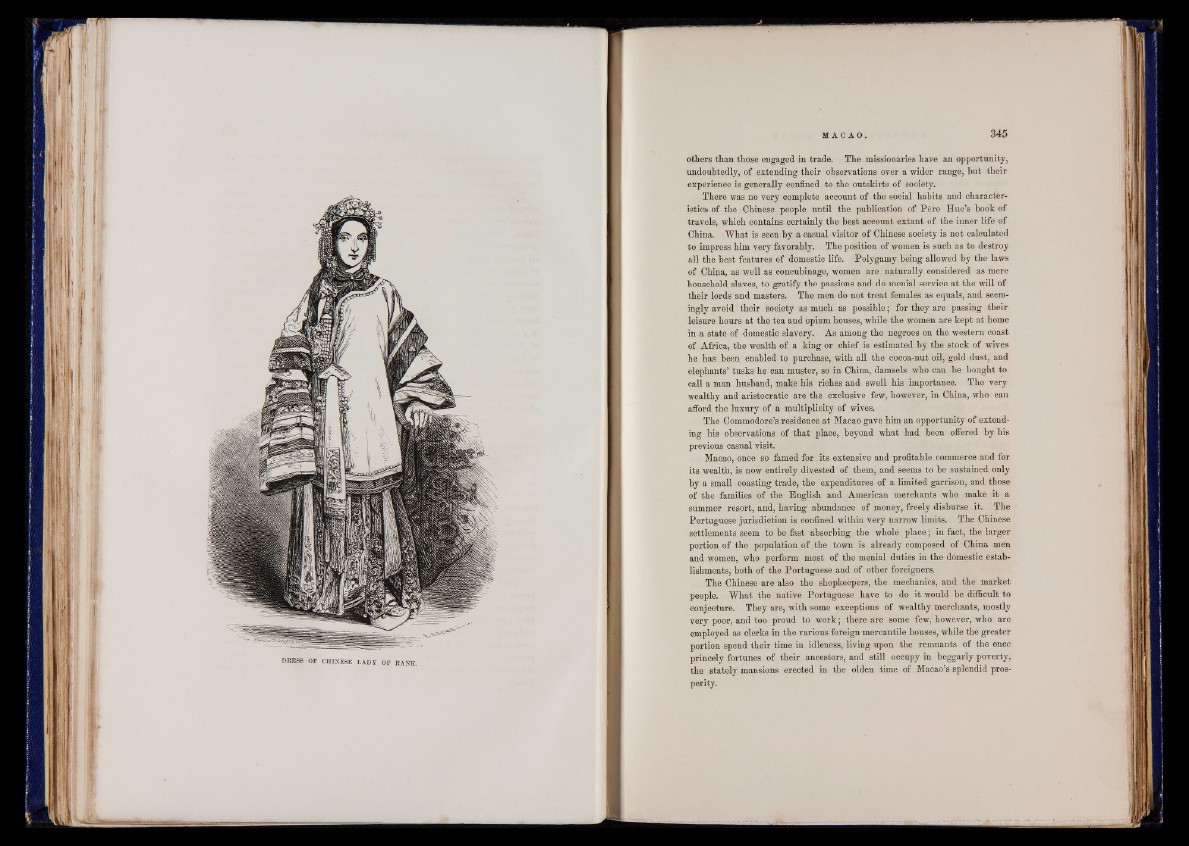
others than those engaged in trade. The missionaries have an opportunity,
undoubtedly, of extending their observations over a wider range, hut their
experience is generally confined to the outskirts of society.
There was no very complete account of the social habits and characteristics
of the Chinese people until the publication of Pfere Hue’s book of
travels, which contains certainly the best account extant of the inner life of
China. What is seen by a casual visitor of Chinese society is not calculated
to impress him very favorably. The position of women is such as to destroy
all the best features of domestic life. Polygamy being allowed by the laws
of Chipa, as well as concubinage, women are naturally considered as mere
household slaves, to gratify the passions and do menial service at the will of
their lords and masters. The men do not treat females as equals, and seemingly
avoid their society as much as possible; for they are passing their
leisure hours at the tea and opium houses, while the women are kept at home
in a state of domestic slavery. As among the negroes on the western coast
of Africa, the wealth of a king or chief is estimated by the stoek of wives
he has been enabled to purchase, with all the cocoa-nut oil, gold dust, and
elephants’ tusks he can muster, so in China, damsels who can be bought to
call a man husband, make his riches and swell his importance. The very
wealthy and aristocratic are the exclusive few, however, in China, who can
afford the luxury of a multiplicity of wives.
The Commodore’s residence at Macao gave him an opportunity of extending
his observations of that place, beyond what had been offered by his
previous casual visit.
Macao, once so famed for its extensive and profitable commerce and for
its wealth, is now entirely divested of them, and seems to be sustained only
by a small coasting trade, the expenditures of a limited garrispn, and those
of the families of the English and American merchants who make it a
summer resort, and, having abundance of money, freely disburse it. The
Portuguese jurisdiction is confined within very narrow limits. The Chinese
settlements seem to be fast absorbing the whole place; in fact, the larger
portion of the population of the town is already composed of China men
and women, who perform most of the menial duties in the domestic establishments,
both of the Portuguese and of other foreigners.
The Chinese are also the shopkeepers, the mechanics, and the market
people. What the native Portuguese have to do it would be difficult to
conjecture. They are, with some exceptions of wealthy merchants, mostly
very poor, and too proud to work; there are some few, however, who are
employed as clerks in the various foreign mercantile houses, while the greater
portion spend their time in idleness, living upon the remnants of the once
princely fortunes of their ancestors, and still occupy in beggarly poverty,
the stately mansions erected in the olden time of Macao’s splendid prosperity.